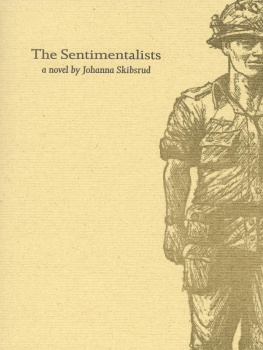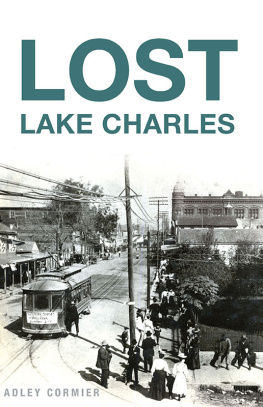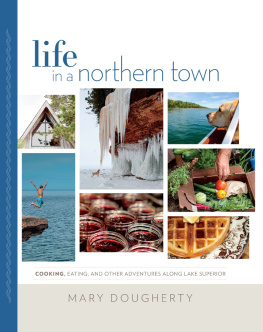All rights reserved. No part of this publication may be reproduced in any form without the prior written consent of the publisher. Any requests for the photocopying of any part of this book should be directed in writing to the Canadian Copyright Licensing Agency. Gaspereau Press acknowledges the support of the Canada Council for the Arts and the Nova Scotia Department of Tourism, Culture & Heritage.
Although some passages may be based on real people, places and events, this is a work of fiction and not a literal depiction.
Typeset in Joanna by Andrew Steeves and printed and bound under the direction of Gary Dunfield at Gaspereau Press.
I. Title.
For my mother
i sing of Olaf glad and big
whose warmest heart recoiled at war
E.E. CUMMINGS
Contents
The house my father left behind in Fargo, North Dakota, was never really a house at all. Always, instead, it was an idea of itself. A carpenters house. A work in progress. So that even after we moved him north to Casablanca, and his Fargo home was dragged away the lot sold to a family from Billings, Montana my father was always saddened and surprised if the place was remembered irreverently, as if it had been a separate and incidental thing; distinct from the rest of our lives. In this way, he remained, until the end, a house carpenter. If only in the way that he looked at things. As if all objects existed in blueprint; in different stages of design or repair.
The Fargo place had been acquired by my father in the first year of his sobriety, and by that time it had already been pieced together from two and a half aluminum trailers and deposited in a lot No. 16 at the edge of a West Fargo mobile-home park. To him, and therefore to us, it was always his palace nevertheless, and he looked on the additions and renovations that he made to the place over the years of his residency there with particular pride.
The park itself was crowned by a large blue and white water tower and the surrounding landscape of West Fargo was so flat that my father could follow the tower, from the other side of town, all the way home. He could drive straight across the city on the carefully sectioned right angles of highway, and it looked, as he approached the park, as if the neat rows of long, low houses were, for the tower, a structural necessity. It also appeared that the park was in the towers full shade. But, as he approached as he passed the last four-way intersection and his own house came into view the tower diminished, the houses lengthened, small front gardens appeared, and there was suddenly space for two or three cars in every drive. By the time he pulled into his own driveway, the water tower, although still large, was a peripheral structure six or seven blocks away.
The additions to the house had been made awkwardly before my father arrived, so that, from the side, the building appeared to be attached by several loose joints. Inside, the linked sections were marked by a step, and because the corridor was so narrow and long those steps were as much of a surprise to come across as a curve would be on a prairie-town street.
At the end of the corridor was the room my father referred to as the second library the first having reached its limit years before. My father was a great reader and a great rememberer of things, though he never remembered anything in the right order, or entirely, and always had just little bits of all the books and poems hed ever read floating around in his mind. The second library was the most lived-in room of the house and stored (besides the shelves of books that gave to it its name) the computer, the TV , the exercise bike, and the photographs, in piles.
The photographs had been mostly those sent, over the years, by my mother and grandmother, and I knew them all well because they were the same ones kept in albums at my mothers house. They were of my sister Helen and me: posed for yearly school portraits, or else with our feet up on soccer balls.
Our early years were documented well in my fathers house. There were shots of backyard camping, of our first dog (a golden lab named Roger), as well as stacks and stacks of Christmas concert photos, in which it is nearly impossible to identify a single subject.
A gap of four years in the progression of the photographs left most of our adolescence unaccounted for, so that, in going through the piles on my first visit to my fathers house, at the age of twenty-two, I was surprised to find us toward the end of the collection suddenly grown. The documentation resumed itself only in sheets of uncut wallet-sized graduation photographs, and then in the newer, less dusty images of my niece, Sophia, which Helen had sent from Tennessee.
The second library was the designated smoking room when I visited. My father retired there after meals, and at half-hour intervals throughout the day. I avoided the room and tried to keep the rest of the house aired out as best I could. Sometimes, though, I would get it into my head that, like my father, I couldnt breathe and then I would run back and forth along the corridor and swing the front and back doors quickly in and out.
In my fathers last winter in Fargo, too out of breath to continue repairs on the palace, he became interested in the stock market. He upgraded his computer and after that spent nearly all of his time in the second library, rarely venturing into the long corridor that led to the rest of the many-roomed house.
He had set up the computer on a low desk next to the television, so that it was possible for him to watch them both at once, and he kept up on the progress of his few shares throughout the day, even watching them while he logged his obligatory mile on the exercise bike, which he had moved in front of the screen. When the markets closed in the evenings and on holidays he missed them and paced the room, he said, like a bear.
The computer was part of a package deal that he paid for so slowly that the interest soon turned out to be double the cost. Im even getting a burner thrown in, my father told me over the phone in January, and a fax machine.
Doesnt all this depress you a little? my sister Helen said a month later when my fathers operations were in full swing.
Dad, I said, what in the hell are you going to fax?
He didnt hear.
I might as well, he told me. At this price I cant afford not to.
By the third week of my fathers career he had lost a total of $150 which he pointed out to us was pretty decent for a newbie.
This is much safer than blackjack, he told me when he tallied the results and let me know.
This might be the wrong economic moment, Dad, I said, to get into this sort of thing.
You may be right, my father admitted, you may be right.
But my next communication from him was an e-mail he sent to both Helen and me, and it looked as though he had no intention of pulling out. It read, Keep your fingers crossed and well be retiring to the original Me-hee-ko in very short order. Another message followed this one closely. Ive given up on the miners, but doing a little research, and, third time being the charm, our next ventures going to put us in the running, my sweethearts. Hope youre feeling as lucky as I am.












